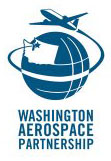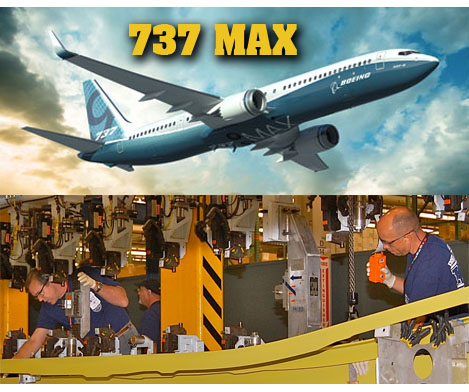STATE GOVERNMENT
Washington: The proven choice for Boeing
Amid the gloom of the struggling national economy, things are looking up for The Boeing Co.
The company’s profits and stock prices are up, beating analysts’ predictions. It has raised its production rates and earnings forecast. It is hiring more workers for its commercial airlines division. And all that was before this week’s announcement of Boeing’s biggest jet orders ever.
It’s all good news — and especially welcome given the company’s recent (and admitted) missteps in outsourcing the design and production of the much-delayed 787.
 But nobody in Washington state is resting on these laurels and our state’s leading role in Boeing’s successes. This week, Boeing unions and the Washington State Labor Council joined Gov. Chris Gregoire and other state business and government leaders this week to launch a renewed campaign to retain and grow aerospace investment where it has proven most successful and profitable for Boeing: right here in Washington. The effort coincides with the release of a new study by Accenture on Washington’s aerospace industry, conducted as part of the Washington Aerospace Partnership’s Project Pegasus, the effort to convince Boeing to build its next-generation 737 MAX here in Washington.
But nobody in Washington state is resting on these laurels and our state’s leading role in Boeing’s successes. This week, Boeing unions and the Washington State Labor Council joined Gov. Chris Gregoire and other state business and government leaders this week to launch a renewed campaign to retain and grow aerospace investment where it has proven most successful and profitable for Boeing: right here in Washington. The effort coincides with the release of a new study by Accenture on Washington’s aerospace industry, conducted as part of the Washington Aerospace Partnership’s Project Pegasus, the effort to convince Boeing to build its next-generation 737 MAX here in Washington.
The combination of an experienced workforce — represented by the Society of Professional Engineering Employees in Aerospace/IFPTE 2001 and Machinists District Council 751 — and available capacity at Boeing’s plants in Washington alongside more than 600 established aerospace suppliers make Washington the clear choice for designing and building the 737 MAX, Gregoire said at a press conference Nov. 16 releasing the study’s findings.
 The Accenture study concluded that Washington is uniquely positioned to win the program, but must work to leverage its advantages and invest to ensure aerospace remains strong, mainly through enhanced education, training and workforce development efforts.
The Accenture study concluded that Washington is uniquely positioned to win the program, but must work to leverage its advantages and invest to ensure aerospace remains strong, mainly through enhanced education, training and workforce development efforts.
“Aerospace is one of the few industries globally that is growing, and Washington state is home to that industry’s largest cluster,” said Machinists 751 President Tom Wroblewski, in announcing the union’s support for the Accenture study’s proposals. “Investing in aerospace workforce training now will insure that we can take advantage of that growth today, and can maintain it in the future.”
SPEEA President Tom McCarty agreed, adding, “If Boeing wants to get it done quickly and done right, they will build it in Washington and use the proven supplier network we have in place — which includes Spirit AeroSystems in Wichita and Triumph in Spokane.”
This week, Boeing announced new orders of more than 280 jets, worth nearly $40 billion at list prices. Dubai’s Emirites airline ordered 50 777s, and in the company’s biggest single deal ever, Indonesia’s Lion Air ordered 29 737-900s extended range jets and 209 of the new 737 MAX, with options to buy 140 more.
The 737 MAX is a new version of Boeing’s most popular plane with more fuel-efficient engines, the first of which are scheduled for delivery in 2017. When the company first announced it would re-engine the 737 rather than design a brand new plane, industry analysts saw that as good news for Washington state, and specifically, the Renton plant where 737s are currently built. But Boeing executives quickly announced that the decision had not yet been made where to build the 737 MAX.
So Washington is once again aggressively engaged in a competition to retain jet production where it has already proven successful and profitable.
The competition comes as Boeing has ramped up 737 pr0duction to an unprecedented 35 planes a month at its Renton plant in October. The company plans to produce 42 of the hot-selling 737s per month in Renton by 2014, and the Machinists say they are up to the challenge.
Boeing’s ability to increase production to these rates shows “all the good things that happen when Boeing partners with you, its most skilled employees,” Wroblewski wrote in his monthly message to members. “You are the most reliable performers across the entire Boeing enterprise, and you deserve the lion’s share of the credit for the company’s success.”





